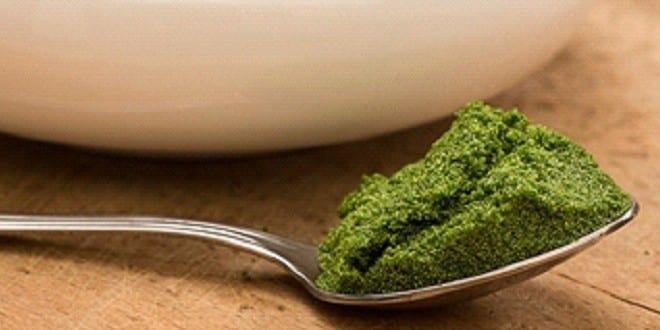The Internet is replete with companies claiming that their natural products offer therapeutic benefits, but many, if not most, are unreliable, misleading and unproven.
However, researchers at Ben-Gurion University of the Negev (BGU) in Beersheba have found that a high-protein aquatic plant strain of duckweed that trademarked with the name Mankai has significant potential as a superfood by providing glycemic control needed after carbohydrate consumption.
Hila Zelicha, a registered dietician and doctoral student in the university’s department of public health and colleagues, researched the glycemic aspect of Mankai, which is produced by the Israeli company Hinoman Ltd. The research was just published in Diabetes Care, the official journal of the American Diabetes Association.
Duckweed has been consumed for hundreds of years in Southeast Asia where it is known as “vegetable meatball” due to its high-protein content – more than 45% of its dry matter. It includes the complete protein profile of eggs, containing all nine essential and six conditional amino acids. In addition, Mankai is very rich in polyphenols, mainly phenolic acids and flavonoids (including catechins), dietary fibers, minerals (including iron and zinc), vitamin A, vitamin B complex, and vitamin B12, which is rarely produced by plants.
Mankai is a whole leaf vegetable-protein claimed by the company to have more whole protein than anything else on the market. The vitamin- and mineral-rich plant was bred from a species whose origins trace to Southeast Asia. It is not a genetically modified organism (GMO).
Hinoman Ltd. developed a way to grow the tiny plant quickly and safely using aquaculture (hydroponics) to ensure a year-round, consistent supply. Hinoman’s hydroponics technology allows complete control and optimization of the plant’s growth. Its taste is mild and neutral, and Mankai can be used in its raw form as a fresh vegetable, whole food supplement or food ingredient.
The Mankai duckweed aquatic plant is being grown in Israel and other countries in a closed environment and is highly sustainable –
requiring a fraction of the amount of water to produce each gram of protein compared to soy, kale or spinach, according to the BGU team.
A previous duckweed study conducted by Alon Kaplan, a doctoral student in the lab of The research group, led by Prof. Iris Shai, a member of BGU’s S. Daniel Abraham International Center for Health and Nutrition and the School of Public Health, Prof. Shai’s lab, published in Clinical Nutrition, showed that the absorption of the essential amino acids from Mankai was similar to the soft cheese and plant (peas) equivalent in protein content, reinforcing its role as a high-quality protein source. Also, the study suggested that Mankai is a unique plant source of vitamin B12.
Another study by the researchers in the Journal of Nutrition published earlier this year by BGU doctoral student Anat Yaskolka Meir R.D. indicates that a Mediterranean diet that includes Mankai, despite being low in red meat, not only doesn’t impair iron status, it elevates iron and folic acid levels. The study also showed that iron from Mankai was efficient in treating iron-deficiency anemia in anemic rats to the same degree as the common treatment.
In this new study, the researchers compared the consumption of a Mankai shake to that of a yogurt shake with the same number of carbohydrates, protein, lipids and calories. Following two weeks of monitoring with glucose sensors, participants who drank the duckweed shake showed a much better response in a variety of measurements including lower glucose peak levels; morning fasting glucose levels – later peak time; and faster glucose evacuation. The participants also felt more satisfied.
It is the aggregation of all of these properties which seem to make the easily used, tasteless and odorless plant, a good candidate to become a superfood. Harvard University apparently agrees, as Mankai smoothies were recently introduced in the Harvard School of Public Health cafeteria.
BGU researchers are continuing to collaborate internationally on evaluating duckweed.




